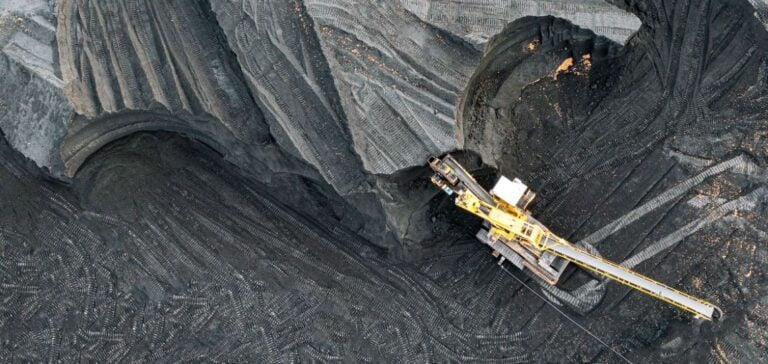Anglo American, a major global mining player, announced the sale of its steelmaking coal mines in Australia to Peabody Energy, an American company specializing in coal extraction. This transaction, estimated at a maximum of $3.775 billion, represents a key step in the British group’s strategic repositioning.
In May 2024, Anglo American revealed a divestment plan aimed at reducing its portfolio in steelmaking coal, platinum, and diamonds in South Africa. This strategic choice is intended to focus its activities on resources deemed essential for future demands, particularly copper, high-grade iron ore, and agricultural nutrients. These segments are seen as critical in the context of the energy transition and the growing demand for high-quality materials.
A Strategic Turning Point for Anglo American
Duncan Wanblad, Chief Executive Officer of Anglo American, emphasized that this divestment represents a new milestone in the implementation of the announced strategy. Simultaneously, the group confirmed the recent sale of its stake in Jellinbah, a joint venture operating in steelmaking coal, for $1.1 billion. These initiatives demonstrate a clear intent to reduce reliance on fossil fuels in favor of strategic materials like copper, widely used in electric vehicles and other clean technologies.
The promising outlook for copper reinforces this strategy. Recognized as a key metal for renewable energy industries and energy storage technologies, copper plays a central role in the infrastructure supporting the global energy transition.
A Market in Transition
This divestment occurs amidst a reorganization of the mining sector. The Australian giant BHP had attempted to merge with Anglo American, but discussions failed. Such a merger would have been one of the largest consolidation deals in the recent history of the mining industry.
Beyond copper, Anglo American also plans to finalize the spin-off of its Anglo American Platinum entity by mid-2025. Additionally, the sale process of its nickel business is progressing rapidly, reflecting increasing interest in these critical metals amidst the energy transition.
Founded in 1917 by Ernest Oppenheimer, Anglo American remains one of the largest global mining companies, with headquarters in London and Johannesburg. This latest strategic decision highlights a significant turning point, not only for the company itself but also for the global mining industry.






















